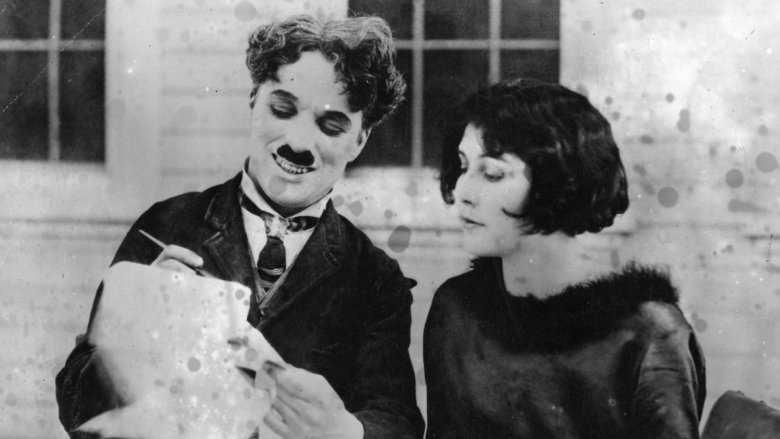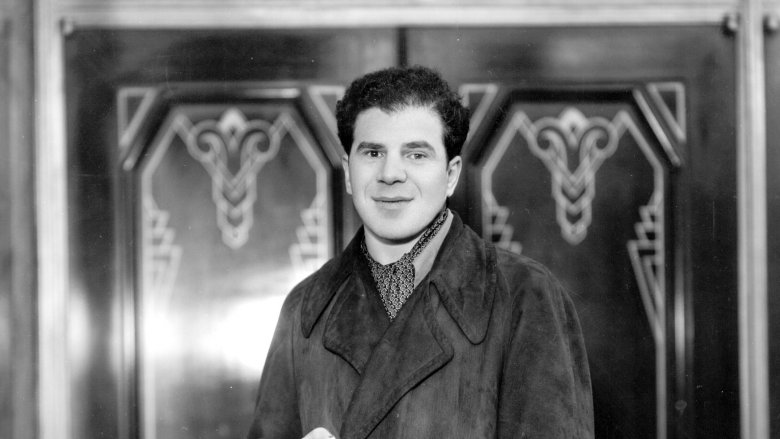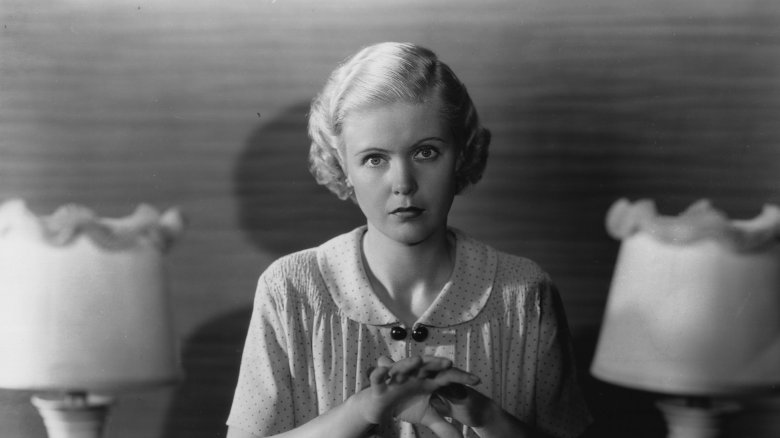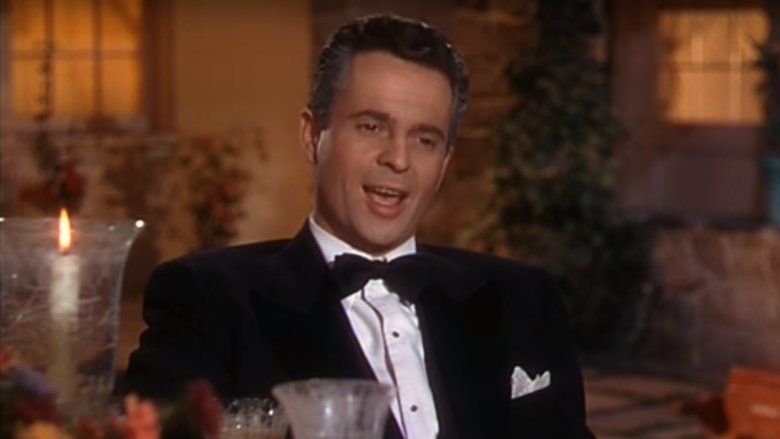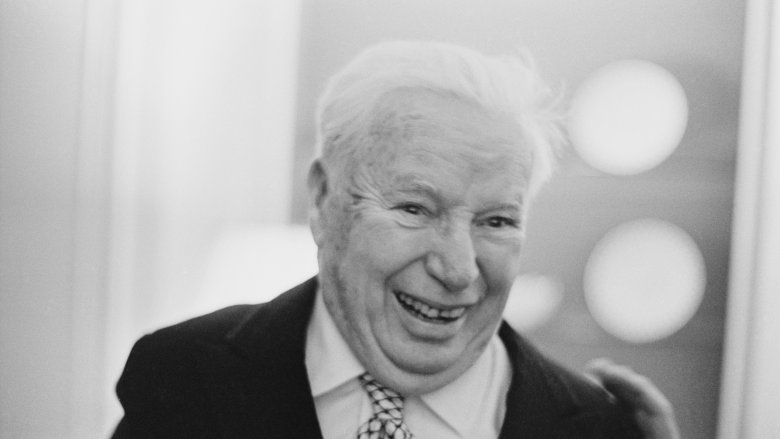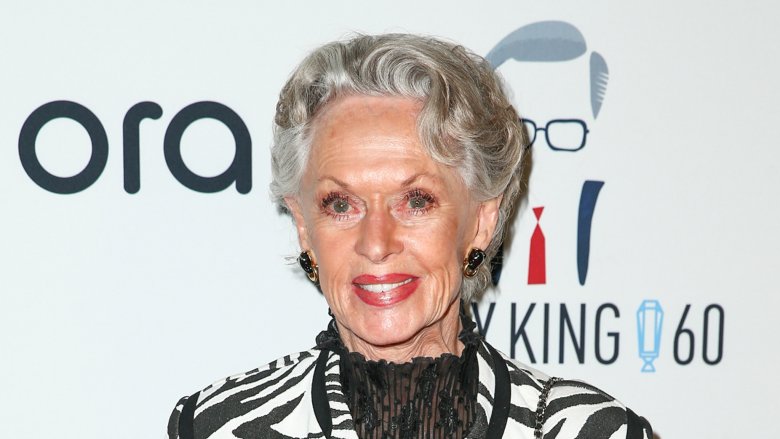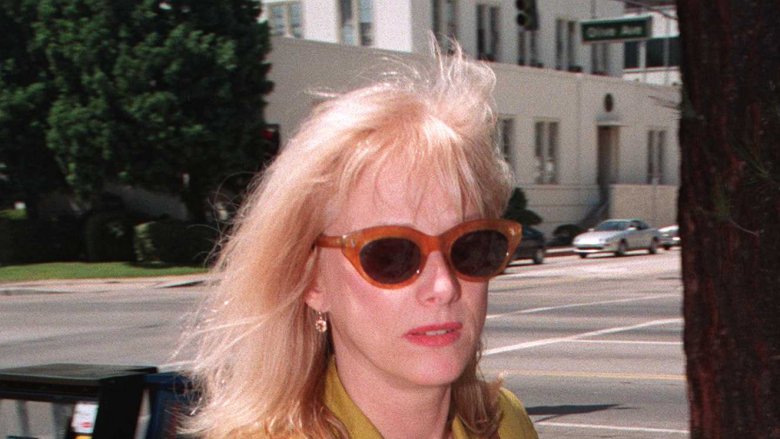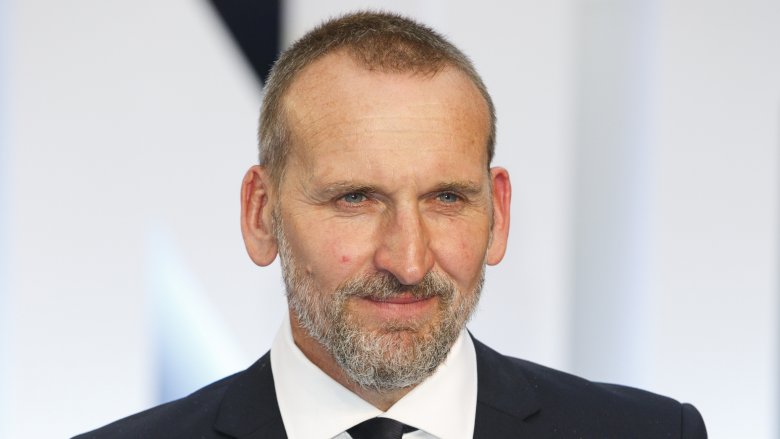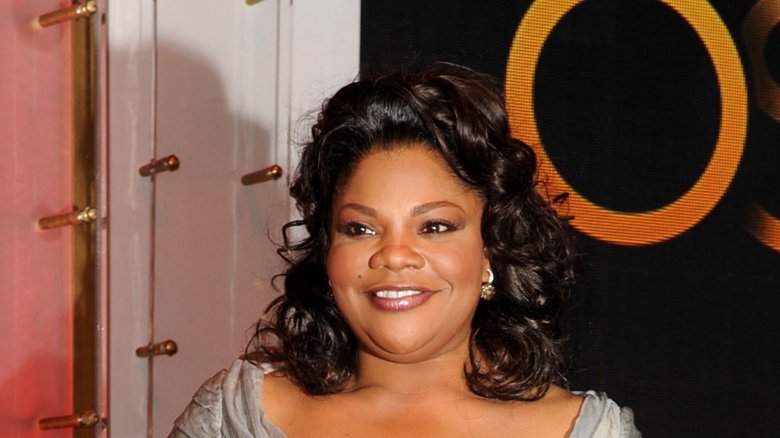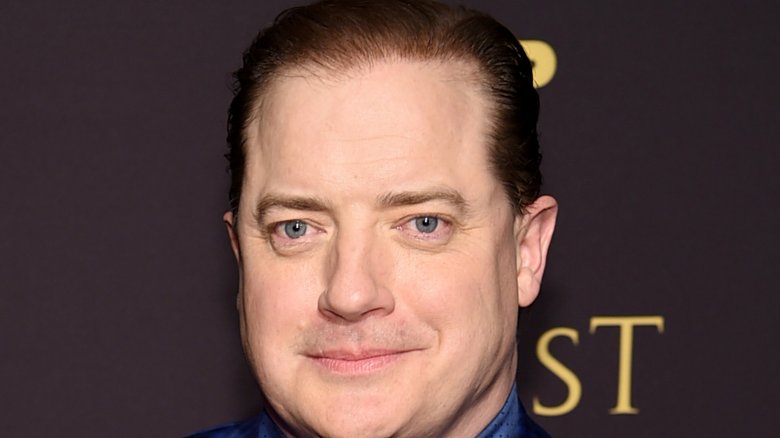The Real Reason These Stars Were Blacklisted In Hollywood
Hollywood is a small town, and the movie industry is fueled by money, power, and influence. These aren't necessarily secrets, but how Tinseltown's behind-the-scenes politics work is not always clear or easy to understand. Take the mysterious Hollywood blacklist, for instance. While this term is thrown around a lot, it's a shadowy category that people know little about. Even many of the actors seem to be unclear how it works. There was a time when Hollywood was much more open and honest about the blacklist. While we may like to think that the reasons for getting listed were more dubious or suspect back then, sadly, times really haven't changed all that much. In fact, the blacklist may have become more malicious over the years.
Failure is a difficult thing to come to terms with in any profession, and fame is fickle and fleeting. These truths make Hollywood one of the more ruthless career environments in the world. Stars are made overnight and fall all the same. For some, the blacklist is used as a security blanket, an excuse that comforts actors when their careers fall apart. Blaming failure on the blacklist may not be ideal, but it's an easier pill to swallow than simply failing.
Yet, there are those who truly did get ousted by Hollywood. What follows are the accounts of the stars that found their names on the blacklist and the real reasons they got there, from early Hollywood to now.
Lionel Stander takes the stand
In the 1930s, Lionel Stander was one of Hollywood's finest. He suggested (via The New York Times) that he was the highest-paid character actor of the era, starring alongside the likes of Fatty Arbuckle, Bob Hope, Gary Cooper, and Janet Gaynor. Stander was also heavily involved with the Screen Actors Guild. Though he would later admit that he "worked very closely with the Communist Party," he never joined. Despite that, Stander got labeled a communist and blacklisted before the list even had a name.
When the House Committee on Un-American Activities (HUAC) formed in 1938, the chairman, Martin Dies Jr., began investigating Hollywood's communist ties. By 1940, the HUAC had released 42 names of people under suspicion. According to Variety, all 42 were met with and cleared, "with the possible exception of actor Lionel Stander."
Even before the HUAC meetings, however, it seemed that Stander's career was in jeopardy. In a piece by The New York Times, Stander recalled a conversation he had with his agent, Abe Lastfogel, in 1939. Stander's agent told him, "Harry Cohn got up at a meeting of the MPAA [Mostion Picture Association of America] last night and said that ... you're a red sonofab*tch and that any one who hires you will have to pay $1,000 to the MPAA." It seems the industry listened. Over the next 24 years, Stander only worked for the major studios when his friends or a particularly brave filmmaker hired him.
Jean Muir is blacklisted because of the Red Channels
While WWII pulled attentions away from the blacklist in the early 1940s, the Red Scare was in full effect in Hollywood by the latter half of the decade. HUAC investigations were in flight. The Hollywood Ten, brave artists who banded together to fight for their constitutional rights, were blacklisted, and accusations were thrown around town like party favors. Then came the Red Channels: The Report of Communist Influence in Radio and Television.
Issued in 1950 by the anti-communist newsletter, Counterattack, the Red Channels pamphlet named 151 professionals with alleged ties to communism. Among the names on the list was Jean Muir, a well-known actress who was recently cast in The Aldrich Family TV show. Despite her passionate denials of being a communist-sympathizer, Muir was immediately fired from the show, making her the first prominent casualty of the report. While the pamphlet and subsequent controversy contributed to her dismissal, Muir's history and personality likely played a part as well.
According to The Guardian, Muir was nicknamed "the studio pest" for always questioning studio and filmmaking decisions. She was also an early member in the Screen Actors Guild and joined the Congress of American Women. With intelligence, spirit, and a reputation for being challenging, Muir was incapable of resisting the industry blacklisting. After removing her from The Aldrich Family, the producers said, regardless of truth of the pamphlet's allegations, Muir was now too "controversial," making her a "sponsor risk."
Larry Parks, the first communist in Hollywood
In the late 1940s, Larry Parks was a star in Hollywood. His performance in 1946's The Jolson Story catapulted him onto the A-list, but his time there was short-lived. In 1951, HUAC was knee-deep in the second round of its investigations into Hollywood's communist activity. When Parks was called before the committee, he did something that no other person had yet to do: He admitted that he was once a Communist Party member. He likely thought he would receive a lesser sentence, but that wasn't how it worked out.
In Parks' tearful admission, he spoke aloud the words, "I was a Communist party member from 1941 to 1945," thus ending his illustrious career. To make matters worse, HUAC then threatened Parks with contempt if he refused to name other members, a threat that he allegedly succumbed to, naming at least one other actor, Lee J. Cobb. Despite then-MPAA president, John Wayne, saying that Parks' admission took "courage" and was "commendable," the ex-Communist Party member was blacklisted from the film industry. Though he would find the occasional gig in film and performed on stage intermittently, Parks ultimately looked to real estate to make a living.
Charlie Chaplin is exiled from America
Despite Charlie Chaplin's time as one of the most celebrated actors in history, controversy and scandal followed him for much of his career. By the end of the 1930s, the British-born actor adopted a political lens in his films, often criticizing the American system and government. This, apparently, ruffled the feathers of the wrong type of people. In the 1940s, with his popularity waning and scandals erupting, Chaplin's powerful enemies took aim.
In 1943, Joan Barry filed a paternity suit against Chaplin after he ended their affair. Though the resulting paternity test proved that Chaplin wasn't the child's father, his trouble wasn't finished. Chaplin soon found himself charged with violating an archaic anti-prostitution act, the Mann Act, allegedly because he paid for Barry's transport across state lines. The courts acquitted Chaplin, but it was apparent that he was the target of a witch-hunt, and his foe was the FBI.
According to later-released case files, it was J. Edgar Hoover, then-FBI director, who tried Chaplin on the Mann Act. It was Hoover that investigated Chaplin's alleged "Soviet espionage activities" in 1948. In fact, Hoover had been collecting information on Chaplin since 1922. Since he owned United Artists, Chaplin was essentially independent, meaning traditional blacklisting would be ineffectual. Therefore, his opposition waited. In 1952, when Chaplin sailed for Europe to promote his new film, Limelight, the U.S. government revoked the actor's re-entry permit over the "grave moral charges" brought forth. Chaplin would not return for 20 years.
Tippi Hedren, from muse to abused
In the early 60s, Tippi Hedren became an overnight sensation. Appearing in the 1963 hit, The Birds, and then Marnie in 1974, Hedren's star shone bright. But then her career seemed to stall. She was the talk of the town, but she took on few roles. Why? Well, it turns out that Hedren's career was ruined by the same man who helped create it: Alfred Hitchcock.
In 1983, Donald Spoto published a book on Hitchcock called The Dark Side of a Genius. He dedicated a chapter to Hedren in which he detailed, for the first time ever, her troubling relationship with Hitchcock. Hedren spoke about the director's controlling nature and how he intentionally stifled her career. Years later, Spoto published Spellbound by Beauty: Alfred Hitchcock and His Leading Ladies, a book that highlighted in even more detail the abuses that Hedren suffered at Hitchcock's side.
In the book (via Dazzling Divas), Hedren recounted how Hitchcock groomed her. "Everyone—I mean everyone—knew he was obsessed with me," she said. "He always wanted a glass of wine or champagne, with me alone, at the end of the day. He was really isolating me from everyone." When Hedren resisted his advances, Hitchcock cut her off from the industry. "All the producers and directors wanted me for their films," she said. "They had to go through him to get to me. All he had to do was say that 'she isn't available.' It was so easy for him."
Sondra Locke is locked out of Hollywood
Actress and director Sondra Locke hit the Hollywood ground running with her film debut in 1968's The Heart Is a Lonely Hunter, earning an Academy Award nomination for her performance. She then cultivated a strong acting career, eventually leading her to land a role next to Clint Eastwood in 1975's The Outlaw Josey Wales. Over the next 14 years, Locke and Eastwood shared a relationship and a house. When that partnership ended, it did so in dramatic fashion.
According to The Los Angeles Times, while the actress was away from home on a movie shoot, "Eastwood packed up Locke's belongings and changed the locks of their Brentwood home in 1989." Locke then filed a palimony suit against Eastwood, beginning a long and drawn out court battle between the parties. To settle the suit, Eastwood reportedly brokered a development deal between Locke and Warner Bros. studios. Locke had since moved into directing, so the deal gave her a direct line to the decision makers, allowing her to pitch her film ideas. Or so she thought.
Years later, Locke took Eastwood back to court, this time alleging that the development deal was a sham. Testimony showed that Eastwood paid $1.5 million to Warner Bros. to subsidize any damages incurred by Locke's films. With that seed of doubt planted, the studios reportedly turned down more than 30 of Locke's pitches. She was blacklisted without even knowing it. Before the jury announced their decision, however, Eastwood settled for an undisclosed amount of money.
BBC blacklists Christopher Eccleston for leaving Doctor Who
From the outside looking in, it seems that Christopher Eccleston's turn as the Doctor on Doctor Who helped make him a star. Yet, to hear the actor tell it, the show did more harm than good. "What happened around Doctor Who almost destroyed my career," he said in an interview with The Guardian. When Eccleston left the show in 2005, there were plenty of rumors and speculation about why. It wasn't until 2011, during an acting masterclass, that Eccleston spoke about what really happened behind-the-scenes.
According to transcripts of the talk, the actor said, "I left Doctor Who because I could not get along with the senior people. I left because of politics." His sudden departure from the show apparently didn't sit well with the powers-that-be at the BBC. "I gave them a hit show and I left with dignity and then they put me on a blacklist," he said. The actor learned this when he spoke to his agent who informed him that "the BBC regime is against" Eccleston.
His options were limited. Rather than stop working or try to resist the opposing forces, Eccleston picked up and went to Hollywood looking for work. Though he took some gigs that he regrets, Eccleston's move to the U.S. market gave him stability and confidence in his career. "I've got to the point where I believe I will work," he says. On this rare occasion, Hollywood seems to have saved someone from a blacklist.
Mo'Nique is blackballed for not playing the game
Though Mo'Nique made a name for herself in comedy in the early noughties, the world took notice of the quality of her acting in the 2009 film, Precious. Winning an Oscar for that magnificent role should have made Mo'Nique more desirable for the studios and filmmakers. Yet, according to reports, as Mo'Nique wrote her Academy Award acceptance speech in preparation, the industry wrote her name on the blacklist.
When Mo'Nique accepted her award, she said (via ABC News), "I would like to thank the Academy for showing it can be about the performance and not the politics." Those politics, which she addressed in her interview with The Hollywood Reporter, were the criticisms she received for not campaigning during award season. She didn't attend enough parties, and she didn't schmooze enough, but she still won. By winning, it seemed that Mo'Nique had overcome the criticism. But there was still more to come.
After the awards, Lee Daniels, the director of Precious, called her. "He said to me, 'Mo'Nique, you've been blackballed,'" she recalled. "I said, 'I've been blackballed? Why have I been blackballed?' And he said, 'Because you didn't play the game.'" Despite the ominous call, Mo'Nique suggested on Good Morning America (via ABC News) that it was Daniels who blackballed her, if only because she didn't thank him in her speech. "I don't think that Hollywood has turned its nose up to me," she said. "I think that those are feelings that Mr. Daniels is having."
Both Brendan Fraser and his career got pinched
In the midst of a strong career, Brendan Fraser found himself at a California hotel in the summer of 2003. According to his interview with GQ Magazine, after shaking hands with Philip Berk, then-president of the Hollywood Foreign Press Association (HFPA), Fraser felt Berk's hand reach around and grab his backside. He recalls feeling sick and scared. The following year, The New York Times reported that Fraser "demanded and received a written apology from both the association and from a longtime member, Philip Berk." However, Berk insisted that the apology "admitted no wrongdoing."
It wasn't long after that altercation that Fraser's career truly stuttered and stumbled. He said to GQ that, work "withered on the vine for me. In my mind, at least, something had been taken away from me." Had he been blacklisted for his allegations against Berk? Fraser isn't quick to place blame, but he does believe it's all connected. "The phone does stop ringing in your career, and you start asking yourself why. There's many reasons, but was this one of them? I think it was." He added, "I don't know if this curried disfavor with the group, with the HFPA. But the silence was deafening."
Rose McGowan's career snuffed out for speaking out
One of the harshest realizations that came out in the wake of the Harvey Weinstein scandal was that many of the women who were abused by Weinstein also saw their careers suffer for it. Years before the Weinstein allegations were made public, Rose McGowan criticized Hollywood's treatment of women. In 2015, she began alluding to the fact that she had been raped, such as in her BuzzFeed interview. In 2016, McGowan tweeted that her attacker was a "studio head" and that she was informed that she couldn't win a case against him even if she tried.
It was only when The New York Times blew the lid off the scandal and published the massive exposé that all the pieces came together. Weinstein was McGowan's alleged attacker. According to the report, Weinstein paid McGowan off in 1997 after "an episode in a hotel room during the Sundance Film Festival." That settlement of $100,000 per the Times, however, couldn't give back what had been taken from McGowan. In addition to emotional trauma, her career was sabotaged and left in shambles because she was victimized. "They threatened [me] with being blacklisted," she said in an interview (via The Guardian). "I was blacklisted after I was raped, because I got raped, because I said something ... but only like internally, you know."

